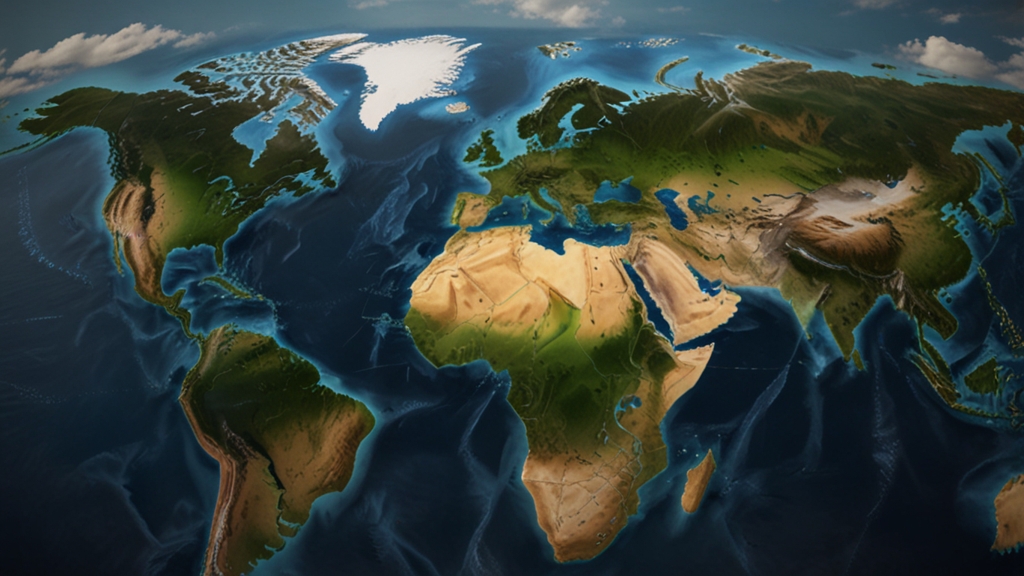The Exodus Paradox: Why Some Countries Benefit from Migration
Migration has been a perpetual force shaping human history, whether driven by necessity or ambition. In the modern world, the phenomenon of migration presents a paradox: while some countries grapple with the burdens of mass migration, others manage to turn this flow into a significant advantage.
Economic Boost Through Labor Enrichment
One of the most substantial benefits of migration is the positive impact on the economy. Migrants often fill crucial gaps in the labor market, taking on roles that are otherwise difficult to fill. This influx of labor encourages growth in various sectors, helping to sustain industries that might otherwise struggle.
"A robust influx of skilled migrants can be the catalyst that accelerates innovations and economic growth, transforming a nation into a more competitive force on the global stage." - Economic Times
For instance, countries like Canada and Germany have actively sought skilled migrants to supplement their aging populations, easing the strain on their social services while simultaneously bolstering the workforce. These newcomers bring diverse skill sets, often complementing the needs of local economies and sparking innovation.
Diverse Skill Sets and Cultural Enrichment
Not only do migrants contribute economically, but they also bring a wealth of cultural diversity that can enrich a society. The fusion of different traditions, cuisines, languages, and perspectives can lead to a more vibrant, dynamic social fabric. This cultural exchange fosters mutual understanding and tolerance, which are essential elements for peaceful coexistence in a globalized world.
Moreover, migrants often possess diverse educational backgrounds and skill sets. This diversity can engender creativity and innovation, particularly in industries such as tech, where a variety of perspectives can lead to groundbreaking advancements.
Demographic Balance and Public Services
Countries with aging populations face the challenge of maintaining a balanced demographic structure. Without a steady influx of younger migrants, these countries would struggle with a shrinking workforce and increased pressures on public services like healthcare and pensions.
Migrants often rejuvenate these aging societies, providing a more balanced age distribution that can support sustainable economic and social systems. Countries like Japan, which faces a severe demographic crisis, are increasingly looking at migration as a possible solution to their workforce shortages and economic stagnation.
"Migration is not a threat; it's an opportunity. We must adapt our policies to maximize its benefits while addressing genuine concerns." - United Nations Secretary-General
Innovation and Entrepreneurship
Migrants frequently display a strong entrepreneurial spirit, founding new businesses at higher rates compared to native-born citizens. This tendency is partly driven by their diverse experiences and perspectives, which provide them with unique market insights and opportunities.
For example, the United States has gained significantly from the entrepreneurial drive of migrants. Numerous successful startups and major companies, such as Google and Tesla, were founded or co-founded by immigrants. These enterprises create jobs, drive technological advancement, and contribute to the country's overall economic prosperity.
Challenges and Integration
Despite the clear benefits, the influx of migrants does present challenges that must be addressed. Societies need to develop robust integration policies that ensure migrants can contribute effectively while feeling included and valued. These policies should focus on language acquisition, educational and professional recognition, and community-building initiatives.
Efforts to successfully integrate migrants can mitigate issues such as social fragmentation, unemployment among migrant populations, and cultural clashes. When managed effectively, the integration of migrants can further amplify their positive impact on the host country.
Conclusion
The exodus paradox highlights the contrasting outcomes of migration: while some countries see it as a burden, others turn it into a strategic advantage. By focusing on integration and harnessing the diverse potential that migrants bring, countries can transform migration into a powerful driver of economic growth, cultural enrichment, and demographic balance.
"The future belongs to those who embrace diversity and turn migration into an opportunity for collective progress." - Global Migration Report
Ultimately, the benefits of migration depend on a country's willingness and ability to adapt and embrace the changes it brings. By addressing the challenges head-on and implementing thoughtful policies, nations can indeed unlock the numerous benefits that migration has to offer.







